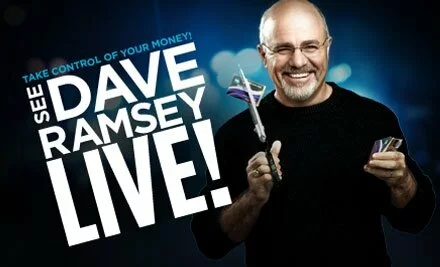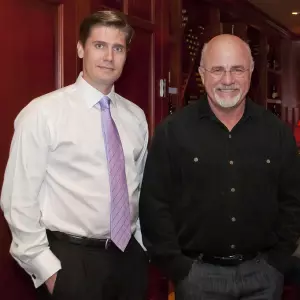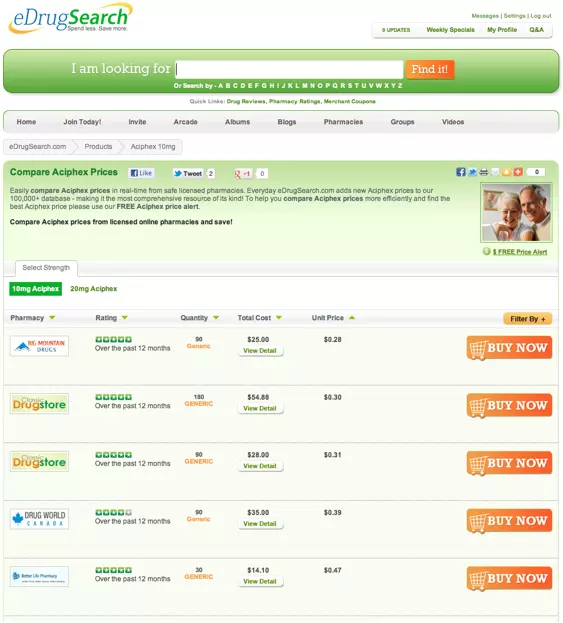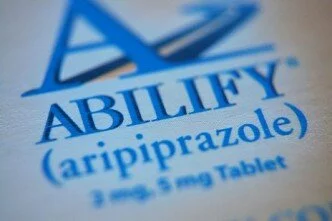Wow, I’m so honored to meet and have eDrugSearch.com sponsor Dave Ramsey’s “Total Money Makeover” Live Event at the Freeman Coliseum today!
My wife and I were able to talk with Dave Ramsey last night at the sponsor’s dinner and let me tell you, it was a real treat! The dinner started off with Dave speaking then it led to a prayer before our meal – I just love being around like-minded Christians, it’s so refreshing!
I’ve never been to a Dave Ramsey event and after hearing him speak for only 10 minutes, I’m completely sold! This guy has a true “Gift from God” and I can’t remember when I learned so much in so little time . . . he had so many “little nuggets” of wisdom it was ridiculous!
Anyhow, I’m off to the Freeman Coliseum in San Antonio, Texas and I will be posting more about the event with some pics here shortly – STAY TUNED!
I encourage everyone reading this to pray for Dave and ask God to anoint him with His spirit so that he can help those who are struggling financially, who need real help, need encouragement, need wisdom, and guidance directed by God – Amen!
eDrugSearch.com, a free online service that allows Americans to find substantial savings on prescription drugs from Canadian and international pharmacies is pleased to give consumers another tool in seeking out savings on their prescription medication – the eDrugSearch.com online price comparison search.
With more than 100,000+ drugs listed on its website, eDrugSearch offers consumers the ability to find discounts of up to 80 percent off of brick-and-mortar store prices, and compare drugs retailers by pharmacy, customer satisfaction rating and cost per unit.
Now, eDrugSearch.com can help those looking to buy aciphex online by providing a comprehensive list of sellers that not only offer a safe and quality product, but at a price that is a substantial reduction from what traditional U.S. retail pharmacies will demand. With eDrugSearch the average consumer stands to save 72 percent on every purchase they make, thanks to up-to-the-minute price searching capabilities of the eDrugsSearch.com search engine.
The company is also committed to ensuring that when customers compare aciphex prices online, only the safest and most reputable results are returned. All pharmacies listed on eDrugSearch.com must pass a rigorous screening process in order to be listed in any search result, a process that includes demonstrating proof of home-country licensing and accreditation by third parties. The combination of safety, reliability and price gives the eDrugSearch.com drug search function a leg up on similar websites or prescription medication searches.
Those looking to buy aciphex online are often stunned by the high costs for even small amounts of the drug, and can be left feeling hopeless, unsure that their budget can accommodate the high amounts being charged for the essential medications needed for their health. eDrugSearch.com is a passionate consumer advocate, and a company that believes in getting people the drugs they need at a price that is fair and reasonable – not one that is inflated simply to make a profit.
When consumers compare aciphex prices using eDrugSearch.com’s comparison feature, they will begin to see the wide variety of pharmacies both in Canada and in other countries abroad that are able to offer up to an 80 percent discount and deliver medications both quickly and reliably.
Click here to compare aciphex prices: /compare-drug-prices-buy-online/Aciphex
Prescription medications are some of the most expensive items that a consumer will ever have to pay for, and often feature markups of a hundred percent or more, just to fill the pockets of the companies that produce and market the drug. With the help of websites like eDrugSearch.com, Americans can not only find the right amount of aciphex they need, but find it at a savings so substantial it will often make retail drug prices seem like a form of theft.
eDrugSearch.com is committed to providing Americans with not only easy access to the prescription medication they need at pharmacies around the world, but to privacy and convenience. Get aciphex today from a licensed pharmacy at the right price.
eDrugSearch.com, a free online service that allows Americans to find substantial savings on prescription drugs from Canadian and international pharmacies is pleased to give consumers another tool in seeking out savings on their prescription medication – the eDrugSearch.com online price comparison search.
With more than 100,000+ drugs listed on its website, eDrugSearch offers consumers the ability to find discounts of up to 80 percent off of brick-and-mortar store prices, and compare drugs retailers by pharmacy, customer satisfaction rating and cost per unit.
Now, eDrugSearch.com can help those looking to buy abilify online by providing a comprehensive list of sellers that not only offer a safe and quality product, but at a price that is a substantial reduction from what traditional U.S. retail pharmacies will demand. With eDrugSearch the average consumer stands to save 72 percent on every purchase they make, thanks to up-to-the-minute price searching capabilities of the eDrugsSearch.com search engine.
The company is also committed to ensuring that when customers compare abilify prices online, only the safest and most reputable results are returned. All pharmacies listed on eDrugSearch.com must pass a rigorous screening process in order to be listed in any search result, a process that includes demonstrating proof of home-country licensing and accreditation by third parties. The combination of safety, reliability and price gives the eDrugSearch.com drug search function a leg up on similar websites or prescription medication searches.
Those looking to buy abilify online are often stunned by the high costs for even small amounts of the drug, and can be left feeling hopeless, unsure that their budget can accommodate the high amounts being charged for the essential medications needed for their health. eDrugSearch.com is a passionate consumer advocate, and a company that believes in getting people the drugs they need at a price that is fair and reasonable – not one that is inflated simply to make a profit.
When consumers compare abilify prices using eDrugSearch.com’s comparison feature, they will begin to see the wide variety of pharmacies both in Canada and in other countries abroad that are able to offer up to an 80 percent discount and deliver medications both quickly and reliably.
Prescription medications are some of the most expensive items that a consumer will ever have to pay for, and often feature markups of a hundred percent or more, just to fill the pockets of the companies that produce and market the drug. With the help of websites like eDrugSearch.com, Americans can not only find the right amount of drug name they need, but find it at a savings so substantial it will often make retail drug prices seem like a form of theft.
eDrugSearch.com is committed to providing Americans with not only easy access to the prescription medication they need at pharmacies around the world, but to privacy and convenience. Get drug name today from a licensed pharmacy at the right price.
As some may know all too well, allergy season is about to hit full swing. Instead of sniffling and sneezing your way through the season, lets take a look at some types of medications that may help remedy your allergy problem.
The 2 different types of allergy medications we will look at are antihistamines and leukotriene modifiers.
Antihistamines
Antihistamines work by blocking receptors for histamine. Histamine is a chemical produced by your body that reacts to certain allergens like pollen, mold, dust mites or pet dander. Certain symptoms that could be relieved by using a antihistamine are nasal congestion, itching, and sneezing.
Current antihistamines don’t cause as much drowsiness as they have in the past, but still can cause mild sleepiness in some users. One great thing about antihistamines is that they can be taken on a regular basis without experiencing significant side effects. Claratin, Allegra, Astelin, Clarinex, and Zyrtec are all common drugs found in the antihistamine category.
Leukotriene Modifiers
Leukotriene modifiers are used to treat both allergies and some types of asthma by blocking leukotriens from their receptors. Leukotrienes are fatty molecules found in the immune system. Like antihistamines, luekotriene modifiers also don’t have many side effects and can be taken regularly.
Here are some commonly known Leukotriene modifiers: Singulair, Accolate, and Zyflo CR.
Some of these allergy medications can be bought over the counter, but those who suffer from allergies should see a doctor for a correct diagnosis as to what type of medication would suit them.
Make sure to order your prescription drugs through eDrugSearch.com to avoid overpaying for your allergy medication.
 Healthcare reform isn’t just about the public option and paying for doctor’s visits — it’s also about equal, affordable access to life-saving medications for all Americans. That’s why many Big Pharma watchdogs are so disappointed with a recent amendment slipped into healthcare legislation that proposes extending patent protection on biologic drugs, delaying for years the public’s access to affordable follow-on versions.
Healthcare reform isn’t just about the public option and paying for doctor’s visits — it’s also about equal, affordable access to life-saving medications for all Americans. That’s why many Big Pharma watchdogs are so disappointed with a recent amendment slipped into healthcare legislation that proposes extending patent protection on biologic drugs, delaying for years the public’s access to affordable follow-on versions.
What are “biologics� They’re the next big wave in medicine — drugs made not from simple chemical formulations, but from biological components. They’re very expensive, and poised for enormous success:
By 2014, the biggest-selling meds will be biologics, according to an analysis from Evaluate Pharma. Taking the place of Pfizer’s gargantuan drug Lipitor will be Roche’s Avastin, a cancer med expected to account for $9.23 billion in 2014 sales. (Even when you factor in the recent trial disappointments.) The next five top sellers, in order, are expected to be Humira (Abbott Labs), Rituxan (Roche), Enbrel (Wyeth/Amgen), Lantus (Sanofi-Aventis), and Herceptin (also Roche).
Evaluate also predicts that half of the top 100 drugs in 2014 will be biotech meds — a huge change from last year’s level of 28 percent and 11 percent in 2000.
Because biologics are so complex, the system we all know — where patented brand names enjoy a period of exclusivity, then eventually make way to cheaper generics — doesn’t translate perfectly. Biologic “generics†are called “biosimilars,†and they are not seen as generic equivalents. They must be submitted for approvals as new drugs and do their own clinical trials, etc.Â
The Eshoo-Barton amendment, named for sponsoring Representatives Anna Eshoo (D – Calif.) and Joe Barton (R – Texas), would give brand-name biologic drugmakers 12 years of market exclusivity. By comparison, President Obama favors seven years, and Rep. Henry Waxman (D –Calif.) feels that the public should have access to “generic†biologics after just five years. By contrast, says Medical News Today, “The Biotechnology Industry Organization maintains that there should be a minimum 14 years of exclusivity to account for a development process that on average takes 10 years and $1.2 billion for a product to reach market.â€
5, 7, 12, or 14 years? As you can see, there is a real difference of opinion on this subject. One person who has written extensively on this is author James Love on the Huffington Post. Here he explains why this amendment is harmful:
The Eshoo/Barton amendment, which has the support of many newly pro-PhRMA democrats, will extend the period of monopolies for biologic medicines, when compared to the original Waxman text. The only question is how long. Part of the harm will be the longer period prohibiting generic suppliers from relying upon evidence that medicines are safe and provide therapeutic benefits. Much of the other harm will come from a number of technical changes in the bill that make it much easier for incumbent firms to block entry through technical issues, extended litigation, and ever-greening of protection from small medically unimportant changes in protected medicines.
This is essentially a case of innovation versus access. Drug companies want protection from the risks and costs borne in the creation and testing of new drugs; patient advocates say that Big Pharma (or Big Biotech, if you like) already make large profits and that the public deserves access to affordable biosimilars in a more timely fashion. “Entities that support longer periods of exclusivity — such as universities, biotech companies and venture capitalists — are ‘fighting to protect inventors’ rights and ensure more thorough clinical trials.’ On the other side, consumer groups, labor unions, insurers and generic drug manufacturers ‘see shorter exclusivity as the way to deliver safe, affordable and quality drugs to patients and open the marketplace to increased competition,’†explains Medical News Today.
The latest high-emotion development is blogger Jane Hamsher’s “Are You Or Someone You Know Paying $50,000 A Year For Drugs?†It paints an ugly picture of what happens to people who cannot affording life-saving biologics. A few days later, Rep. Eshoo responded to this and other online attention with a blog post on The Hill’s Congress Blog titled “Setting the record straight on our health care legislation.†If you check in with these two articles, you’ll have the latest from both side of the “biologic generics” debate.
Our mission, as always, at EDrugSearch.com is to improve the American public’s access to safe, quality medications at an affordable cost.
For more information:
- Should We Be OK With The PhRMA Deal With White House?
- US House Panel Backs Exclusivity for Biologic Drugs
- Pay or die: Deadly Pharma amendment in HCR going right under radar
Save money on popular meds as they go generic in 2010

We’re nearing the end of the year, and many people are already in open enrollment for next year’s health coverage, which means it is a great time to plan ahead for your 2010 drug expenditures. No, you can’t know every medication you are going to need, but if you are on a popular, patented maintenance drug such as Lipitor or Cozaar, you’ll be pleased to hear that their patents are expiring in 2010, opening the field for more-affordable U.S. generic versions.
In the meantime, as you do your research, you will see that many are already available as generics, manufactured outside of the U.S. There is usually a considerable cost savings.
Here are all the details of some of the highest-profile drugs that have expiring patents as of the end of 2009, or during 2010 — and how and where to get the generic versions.
ARICEPT (donepezil). Pfizer makes the acetylcholinesterase inhibitor Aricept for the treatment of Alzheimer’s disease. Aricept is scheduled to lose patent protection in the U.S. in 2010, but generic versions are already available.
COZAAR (losartan). Merck’s Cozaar is an angiotensin II receptor antagonist, used to treat hypertension. Cozaar’s patent protection in the U.S. will expire in 2010. In the meantime, generic losartan is available here.
LEVAQUIN (levofloxacin). Johnson & Johnson’s antibiotic drug Levaquin will outlive its patent protection in 2010. However, until that time, you can purchase generic levofloxacin here.
LIPITOR (atorvastatin). Pfizer has the best-selling drug in the world in Lipitor, which treats high cholesterol. In the US, the basic patent for Lipitor expires in March 2010, while the second patent covering the calcium salt of atorvastatin expires in June 2011. It is not yet clear exactly which date will see widespread availability of generic Lipitor in the U.S., but it is coming. In the meantime, generic atorvastatin is available here.
XENICAL (orlistat). Roche’s Xenical is an obesity treatment that prevents the digestive system from absorbing fats. Its patent expires in December of this year. (Note: In some countries, including the U.S., orlistat is available over-the-counter as GlaxoSmithKline’s Alli.)
VALTREX (valacyclovir). GlaxoSmithKline’s Valtrex is a treatment for herpes simplex and herpes zoster (shingles). Valacyclovir was recently approved for generic production, and so generic versions will be on the U.S. market by the end of 2009. As of this writing, generic valacyclovir is available here.
If you’re interested in the business ramifications for the pharmaceutical companies, CNN ran a good article on the topic, and so did Chemistry World.
Enjoy using EDrugSearch.com to knowledgeably plan your medication choices for the coming year.
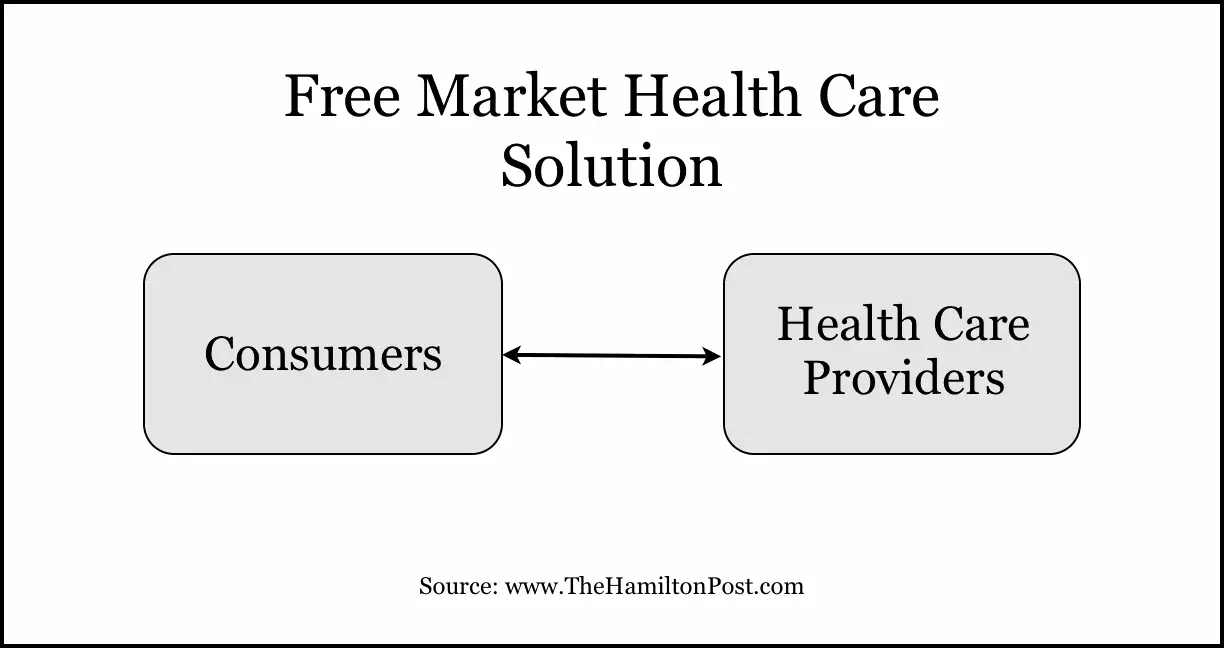
I recently saw yet another op-ed in another newspaper by another Big Pharma shill — you know, someone handed his talking points and told to go at it.
You can tell they’re a shill when they make exactly the same argument, point by point, as all the other shills make. You also know they’re a shill when they claim to be a conservative — and yet support blatant protectionism and all sorts of other anti-free market principles when it comes to Big Pharma.
Here’s a taste of the op-ed on Canadian drug reimportation, by a Dr. Gilbert Ross of the American Council on Science and Health in the Washington Examiner:
While many think of them as a cheap alternative to domestic drug purchases, the so-called “Canadian” drugs allowed under the Vitter Amendment can come from almost anywhere on the globe. It’s an easy path for substandard and toxic drugs to enter our supply…
Imposing price controls here — which is what importation, in effect, does — will lead to stagnation in our own drug research and development process. Our children and grandchildren will have to accept 2009-quality drugs far into the future.
Yes, the American Council on Science and Health is a corporate front group, of course. And Ross’ “conservative” arguments are as tired as can be.
But I was pleasantly surprised to see comments on Ross’ post by people who understand what conservative principles actually are — and who saw the post for what it was.
A “Lanier Y Chapman” wrote –
Shouldn’t good conservatives be against the FDA, which is a government regulator? Let drugs (medicinal and narcotic) come in, and let anyone buy anything from anywhere.
And by the way, free importation is not price control. It’s just free trade. How can you be against free trade? Dr. Ross sounds like a shill, and drug companies are sounding like car manufacturers, teachers’ unions, NEA perverts, steel producers, sugar growers, etc–lobbies that try to use government intervention to steal money from Americans.
And then there’s this comment from “Steve,” who introduces Ross’ pharma doubletalk to reality:
Yes, I want to see the U.S. pharmaceutical industry continue to be innovative; but at the same time, for example I’m getting a drug from India (thru Canada) that costs me $225 for a 90 day supply. The U.S. version (discovered by a U.S. company) would cost me over $1000 for a 90 day supply. And to make it worse, my insurance company will not pay for any of it, even though it is necessary.
Don’t buy any of Big Pharma’s ridiculous arguments about reimportation. And please, don’t buy that they’re “conservative” arguments.
They’re anything but.
Image source
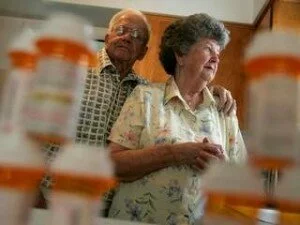
Above is a photograph by Eric Seals of the Detroit Free Press. It depicts James and Geraldine Keon, who for the past three years have regularly purchased their prescription drugs from Canada.
The Free Press profiles the Keons and other Americans who use Canadian pharmacies as part of a story on drug reimportation published over the weekend.
The piece is a bit too heavily influenced by Big Pharma lobbyists and their government cronies, who raise the usual bogeyman arguments about Canadian drugs. But a few important points shine through –
- One congressional estimate says Americans could save $50 billion over 10 years if the nation permitted U.S.-manufactured drugs to be reimported from Canada and other nations where price controls on pharmaceuticals hold down costs.
- Even PhRMA and the FDA acknowledge there haven’t been widespread incidences of people falling ill or dying from adulterated, counterfeit or mislabeled drugs purchased via Internet pharmacies.
- “Some industry groups out there have clearly been active in a public relations campaign to make it seem like buying drugs from Canada is not safe,” said Gabriel Levitt, PharmacyChecker’s vice president. “To scare Americans who are getting their prescriptions safely is borderline unethical.”
The article also offers these four tips for buying from Canadian pharmacies:
- Have the name of the pharmacy and its address, phone, license number and province. The information should be clearly identified on the company’s Web page.
- Buy drugs only through pharmacies affiliated with the Canadian International Pharmacy Association, a trade group.
- Buy only from pharmacies that require a prescription from the patient’s U.S. physician.
- The pharmacy must have a Canadian physician who reviews the prescription, as well as pharmacists available for consultation.
All Canadian pharmacies in the eDrugSearch.com network meet these criteria.

Can I make a suggestion to you? When some political blowhard on TV or the radio tells you something, don’t automatically believe it. Do your research to learn the facts for yourself, OK?
You see, pundits and politicians lie. And they hope you’ll be so accepting of their carefully crafted talking points that you won’t bother to investigate an issue for yourself.
A great example is high drug prices. America has — by far — the highest prescription drug prices in the world. But the pharmaceutical industry, aided by various demagogic pundits and alleged “think tanks,” has done a masterful job of convincing a sizable minority of Americans that these high prices are not the pharmaceutical industry’s fault, or our government’s fault — but instead, the fault of other countries.
Specifically, they argue that drug prices in Canada and Europe are too low, because those countries are “socialist” and put price controls on medications. That leaves the poor pharmaceutical industry to recoup all its enormous R&D costs by charging your grandma $100 for a bottle of pills that everyone else on the planet pays $40 or less for.
You see, America believes in the “free market.” America believes in “competition.” And that’s why America’s drug prices are correct — because they’re set by the “free market,” not by “socialist” price controls.
What a load of rubbish.
When it comes to prescription drugs, America is anything but a “free market.” In a free market, if a company developed a new drug, its competitors could develop competing drugs, and prices would quickly come down to a price set by the market.
That doesn’t happen in America. In America, we do have a form of socialism; it’s called “corporate welfare.”
When a new drug is developed, our government gives the drug company so-called “patent protections.” This means other companies are not allowed to compete with the drug developer for a period of several years.
Then, we allow these same drug companies to game the system, enabling them to extend their patents indefinitely by creating “new and improved” versions of the same drugs ad nauseum.
Finally — and this might be the most “ad nauseating” thing of all — once a drug company’s patent expires, our government allows drug companies to pay off generic suppliers to NOT make low-cost competing drugs.
Does ANY of this sound like a “free market” to you?
You can thank our lawmakers in Washington — and their friends, the pharmaceutical lobbyists with briefcases full of campaign contributions — for creating this system. It’s not a “free market” because Big Pharma has bought and paid for it.
All of this is to preface telling you that your outrage as consumers — despite the best efforts of Big Pharma and its water carriers to tamp it down — is finally having an impact.
President Obama is working with Congress to make it illegal for drug companies to pay off generic drugmakers. As U.S. News & World Report explains:
The administration wants to ban makers of brand-name drugs from shelling out “pay-for-delay” settlements to generic drugmakers, a practice that creates a financial incentive for generic drug companies to keep their much cheaper drugs off the market.
“If it’s legal for a brand to pay a generic to sit out, why wouldn’t it?” Federal Trade Commission Chairman Jon Leibowitz explained today at a Center for American Progress event. “And if a generic drug company is allowed to make more money by not competing than by going to market, isn’t that a good business deal for the company and its shareholders? The answer is, of course it is.”
Brand-name drugmakers have exclusive rights to their drugs only for a limited time. Generic drug companies can enter the market once the original patent is expired, “invented around,” or invalidated. This is when the elbows come out, as brand-name drug companies in recent years have spent millions paying their generic rivals to drop patent challenges. It’s often better business for the generic drug company to take the money than to continue the challenge and then put the drug out there. “Clearly these are win-win deals for the companies, but they leave consumers footing the bill,” says Leibowitz.
The administration is solidly behind stopping this, and there are bills making their way through the House and Senate that would do just that. If the practice ends, American consumers could save $35 billion over a 10-year period, according to Leibowitz. The government’s savings could be $12 billion over 10 years since it pays such a hefty chunk of the nation’s prescription drug bill. “And these assumptions are quite conservative,” adds Leibowitz.
Someone once told me during an argument that I was entitled to my own opinions — but not to my own facts.
You can say “yes” to high drug prices if you want to. But don’t ever say that high drug prices are set by the “free market.” That’s a load of hooey.
Image source
The eDrugSearch.com e-book “99 Ways to Save Money on Your Prescription Drugs, 2012 Edition” is now available on Scribd, where you can see a preview of the book’s first 4 pages before purchasing.
Check it out and start saving on your prescription drugs now!
eDrugSearch.com’s 99 Ways to Save Money on Your Prescription Drugs 2012 Edition
-
-
Search Blog Posts
-
Save Even More Money!
-

-
Trending Content
-
Watch our YouTube Video
-
Categories
Big Pharma Buy prescriptions online Canadian drugs Drug costs Drug reimportation Drug safety eDrugSearch.com FDA Health 2.0 Healthcare100 Healthcare blogs Healthcare solutions Low-cost drugs Medicare Part D Merck Online pharmacies Online pharmacy safety Pfizer Pharma bloggers Pharmaceutical companies Pharmaceutical marketing Pharma cheerleaders Prescription drug abuse Prescription drug prices Prescription drugs Prescriptions Wal-Mart drug plan -
Blogroll
- Bullet Wisdom
- Bulverde Business Directory
- Christian Counseling San Antonio Tx.
- Christian Schools in San Antonio Texas
- Christian Social Network
- Christians United for Israel
- DrugWonks.com
- Eye on FDA
- GoozNews
- Health 2.0
- Hunting Forum
- In the Pipeline
- Jesus Christ Our King
- John Hagee Ministries
- Kevin, M.D.
- Local Search Marketing
- My $299 Website
- Pharm Aid
- Pharma Marketing
- PharmaGossip
- Pharmalot
- San Antonio Asphalt
- San Antonio Life Insurance
- San Antonio Pressure Washing
- Storage New Braunfels Tx
- Texas Wildlife Supply
- The Angry Pharmacist
- The Health Care Blog
- The Peter Rost Blog
- World Vision
-
Tags
big pharma Canadian drugs canadian pharmacies canadian pharmacy consumer reports craig newmark divine healing Drug costs drug prices Drug reimportation eDrugSearch.com FDA Fosamax Generic drugs healing scriptures Health 2.0 healthcare reform Hypertension Jehova Rophe Jesus Christ Lipitor Metformin miracles nabp online pharmacy dictionary online prescriptions osteoporosis peter rost Pharmacies pharmacists pharmacychecker pharmacy spam phrma Prescription drugs prescription medication Proverbs 3:5-8 reimportation relenza Roche saving money SSRI swine flu Tamiflu The Great Physician The Lord our Healer -
Recent Tweets
- eDrugSearch Blog Rank on the Healthcare100: http://t.co/VJprL4LZWl [#]
- New blog posting, How to Get Prescription Medication Without Health Insurance - http://t.co/1ZdLavB87d [#]
- 10 Tips for Safer Prescription Drug Use http://t.co/GFnMIN1mCy [#]
- New blog posting, How to Beat High Drug Prices By Comparing Low Cost Pharmacies - http://t.co/fsZ0stNZme [#]
-
Archives
-
Recent Comments
- Heather Sturges on What is the Difference Between Effexor and Cymbalta?
- Lupe Machol on Cost of diabetes drugs has nearly doubled
- Manpower For Hospital In Pune on Why is Medicine Cheaper in Canada?
- Jen on How a Canadian Pharmacy Can Help You Offset Drug Price Hikes
- nino iarajuli on Vending machine dispenses prescription drugs
